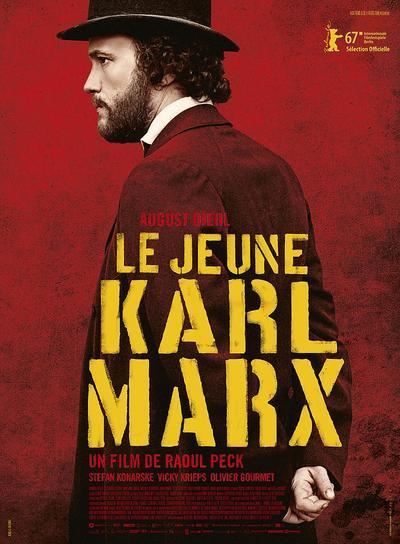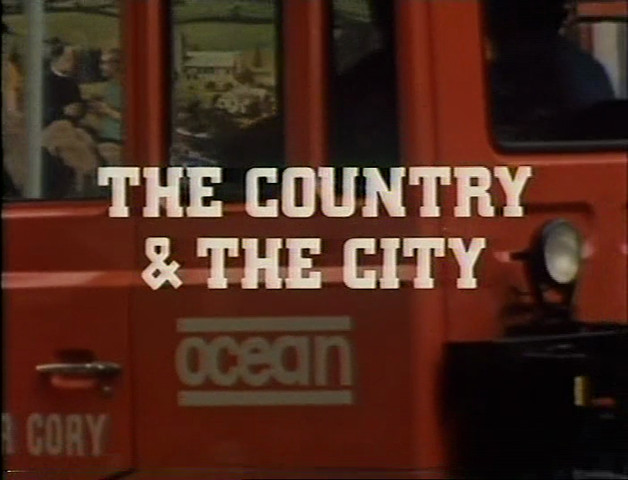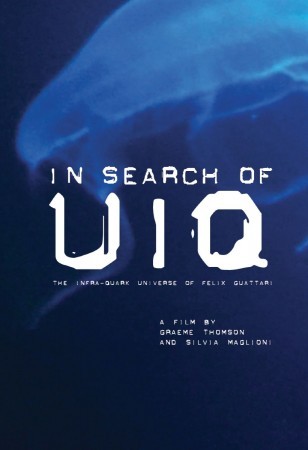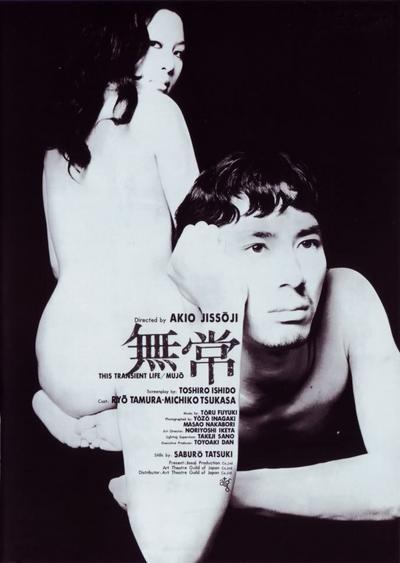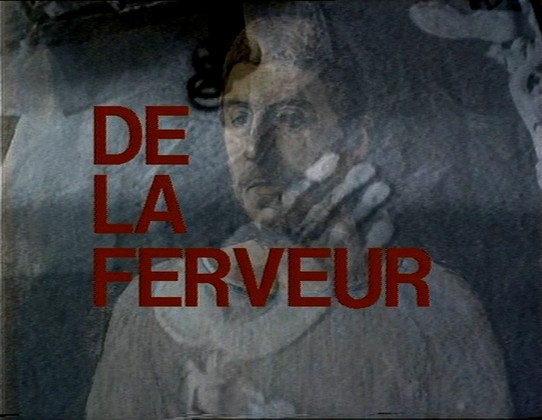Quote:
The Tibetan film Milarepa, produced in 2006 is set in the magnificent Spiti Valley high in the Himalayas in the Zanskar region close to the border between India and Tibet. Directed by Neten Choklin, a Lama from Western Bhutan who has previously worked with Khyentse Norbu on the films such as The Cup and Travellers and Magicians, the film is the first part about the adventurous formative years of the legendary buddhist mystic, Milarepa (1052-1135) who is one of the most widely known Tibetan Saints, but whom set out for vengeance and retribution.
Read More »
Philosophy
-
Neten Chokling – Milarepa (2006)
2001-2010ArthouseBhutanNeten ChoklingPhilosophyPhilosophy on Screen -
Guy Debord – In girum imus nocte et consumimur igni AKA We Spin Around the Night Consumed by the Fire (1978)
1971-1980ArthouseFranceGuy DebordPhilosophyThe Films of May '68Quote:
Guy Debord’s final film, In girum imus nocte et consumimur igni (1978) (a Latin palindrome meaning ‘We go round and round in the night and are consumed by fire’), is structured as a dual reflection on the misery of (then) contemporary cinema, and the memory of those revolutionary moments that might have led to another cinema. The central image of the film is the charge of the light brigade, from Michael Curtiz’s 1936 film of the name, which figures the adventure of the Situationists. This is not simply an image of heroic futility, but the image of the evanescent eruption of the Situationists into history. In his commentary Debord argues that the film is organized by two elemental themes: water, as the representation of the flowing time, and fire, as the representation of momentary brilliance, in which water always drowns out this ‘fire.’ While it would be quite possible to give this a quasi-mystical reading it is, in fact, deeply political.Read More » -
Shuji Terayama & Shuntaro Tanikawa – Video Letters 1982-1983 (1982)
1981-1990AsianJapanPhilosophyShuji Terayama and Shuntaro Tanikawa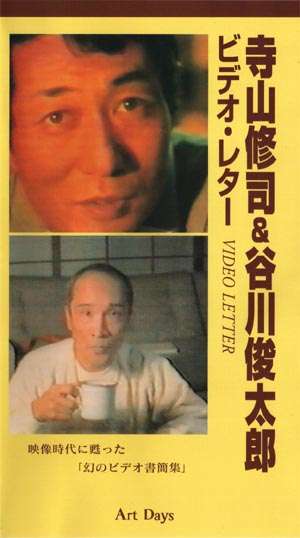
Shuji Terayama (December 10, 1935—May 4, 1983) was an avant-garde Japanese dramatist, writer, director, and photographer, noted for such films as Emperor Tomato Ketchup and Fruits of Passion.
In 1967, Terayama started an experimental cinema and gallery called ‘Universal Gravitation,’ which is in fact still in existence at Misawa as a resource center. The Terayama Shuji Memorial Hall, which has a large collection of his plays, novels, poetry, photography and a great number of his personal affects and relics from his theatre productions, can also be found in Misawa.
source: artandpopularcultureRead More » -
Yong-Kyun Bae – Dharmaga tongjoguro kan kkadalgun AKA Why Has Bodhi-Dharma Left for the East?: A Zen Fable (1989)
1981-1990DramaPhilosophySouth KoreaYong-Kyun BaeSynopsis:
Three people live in a remote Buddhist monastery near Mount Chonan: Hyegok, the old master; Yong Nan, a young man who has left his extended family in the city to seek enlightenment – Hyegok calls him Kibong!; and, an orphan lad Haejin, whom Hyegok has brought to the monastery to raise as a monk. The story is mostly Yong Nan’s, told in flashbacks: how he came to the monastery, his brief return to the city, his vacillation between the turbulence of the world and his hope to overcome passions and escape the idea of self. We also see Hyegok as a teacher, a protector, and a father figure, and we watch Haejin make his way as a curious and nearly self-sufficient child.Read More » -
Raoul Peck – Le jeune Karl Marx AKA The Young Karl Marx (2017)
2011-2020DramaGermanyPhilosophyRaoul PeckThe early years of Karl Marx, Friedrich Engels and Jenny Marx, between Paris, Brussels and London.
Read More » -
Michael Dibb – The Country and the City: A Film With Raymond Williams [+ Extras] (1979)
1971-1980Michael DibbPhilosophyPoliticsUnited KingdomAn extremely dense translation to film of Raymond Williams’ 1973 book of the same title which traces images of ‘nature’ and ‘town’ through 200 years of English literature. The connections Williams establishes as he traces the history of Tatton Park near Manchester – ‘an almost perfect example of how the English country house has influenced if not dominated our images of the country’ – are often startling and the film’s style continually illuminates the overall argument. All of the details taken from writers, painters, landscape artists and from 19th and 20th history of major urban centres are placed within a framework of class-based economic history – ‘the country and the city are parts of an interacting system dominated by a single class’- and the result is a unique TV essay. Michael Dibb, the director, has worked well with Williams to ensure that every image, every snatch of sound-track plays its part in the structure.
Time OutRead More » -
Silvia Maglioni & Graeme Thomson – In Search of UIQ (2013)
2011-2020PhilosophySci-FiSilvia Maglioni and Graeme ThomsonFOR THOSE WHO WANTS LOVE AND FREEDOM
In Search of UIQ unfolds the story of Félix Guattari’s lost science-fiction screenplay, Un Amour d’UIQ. Conceived during the 1980s, this unmade film imagines the discovery of the Infra-quark Universe (UIQ), an alien intelligence from a parallel dimension that falls in love with one of its human hosts, an event which has catastrophic consequences for the whole planet. Moving between documentary, fiction and essay, through the deployment of video, film and sound archives, letters and other documents that are enmeshed in a series of fabulations, In Search of UIQ explores what the cinema of the Infra-quark might have been (and may still become) and considers its rapport with key social and political transformations of our time from autonomist struggles to the digital recoding of life.Read More » -
Akio Jissôji – Mujô AKA This Transient Life (1970)
1961-1970Akio JissojiArthouseJapanPhilosophyQuote:
One of the recurrent themes of the Art Theatre Guild (ATG)’s films of the 60s and early 70s was incest. In Funeral Procession of Roses (Bara No Soretsu, 1968) Toshio Matsumoto told a modern version of the Oedipus tale, transplanting the story into the gay subculture of present-day Tokyo. The hero of Susumu Hani’s The Inferno of First Love (Hatsukoi Jigokuhen, 1968) suffers from the sexual abuse of his stepfather. In Yoshishige Yoshida’s Heroic Purgatory (Rengoku Eroica, 1970) a young girl who creeps into the life of a scientist and his wife pretending to be their daughter seduces her alleged father. The family head in Nagisa Oshima’s masterful critique of the patriarchic family, The Ceremony (Gishiki, 1971), rapes his son’s bride. In Masahiro Shinoda’s Himiko (1974) the prehistoric shaman empress of Japan falls in love with her brother and is killed by ruthless elders who can no longer exercise control over her. In Kazuo Kuroki’s Preparations for the Festival (Matsuri No Junbi, 1975) the disabled Kikuo is sexually comforted by his mother, and in Shuji Terayama’s Pastoral: To Die in the Country (Den’en Ni Shisu, 1974), the story of a boy who tries to escape his mother, incest is omnipresent.Read More » -
Jean-Luc Godard & Anne-Marie Miéville – Le rapport Darty (1989)
1981-1990FranceJean-Luc GodardJean-Luc Godard and Anne-Marie MiévillePhilosophyPolitics“French companies never seemed to learn that Godard would never make anything like a traditional advertisement, so when the Darty appliance chain commissioned a pub from the mischievous director, they were in for trouble: a daring deconstruction of consumerism, rejected by its funders.”Read More »




